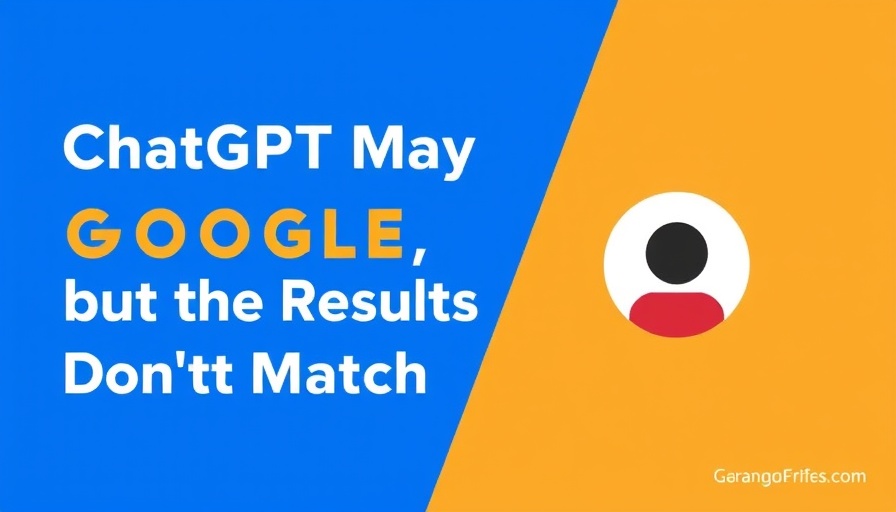
ChatGPT’s Scrutinized Relationship with Google’s Search Results
In a significant revelation for digital marketers and SEO enthusiasts, recent studies indicate that while ChatGPT scrapes Google’s results, the citations do not correspond as closely as one might expect. This surprising finding stems from experiments designed to analyze the relationship between the URLs cited by AI assistants like ChatGPT and those displayed by Google for identical queries.
Understanding AI Citation Mechanisms
Contrary to the belief that AI, including ChatGPT, simply lifts URLs from Google or Bing’s vast databases, the evidence suggests that these models employ an intricate layer of processing before offering sources. Such a process complicates the landscape for content creators striving to optimize their pages for AI-driven tools. By examining specific types of search queries, researchers have unveiled how these AI assistants respond differently compared to traditional search engines.
The Experiment: Long-Tail vs. Short-Tail Keywords
Researchers tested a variety of queries—from long-tail prompts to short-tail keywords—to assess how citations overlap between AI responses and search results. The studies included a significant sample of 3,311 SEO-style head terms, which range in intent from informational to transactional queries. The results demonstrate that even with deliberate efforts to optimize for fan-out queries, the overlap between AI outputs and Google’s links remains surprisingly limited.
Implications for Digital Marketing Strategies
For marketers, understanding how ChatGPT interacts with Google is essential for crafting effective content strategies. With AI processing and filtering information differently, businesses may need to reconsider their SEO tactics. Emphasizing unique content that resonates with users might just be the key to navigating this new digital landscape, where the pathways to visibility are no longer straightforward.
The Uncertain Future of AI and Search
This new landscape raises a question: what does the future hold for AI-assisted searching and search engine optimization? As AI tools advance and their capabilities expand, we must anticipate shifts in how information is retrieved and cited. Will AI-driven search become the predominant method of accessing knowledge, or will it coexist with traditional search engines? Only time will tell, but the convergence of AI and search warrants close observation.
Conclusion: Stay Ahead of the Curve
As industry professionals, it is crucial to remain informed about these emerging trends in AI and search engine dynamics. Continuous learning, adapting strategies, and engaging with ongoing research will be essential as we navigate this evolving digital space. For those eager to delve deeper, understanding these intricate relationships can pave the way for innovative marketing strategies that leverage both traditional and AI-driven search capabilities.
 Add Row
Add Row  Add
Add 




Write A Comment